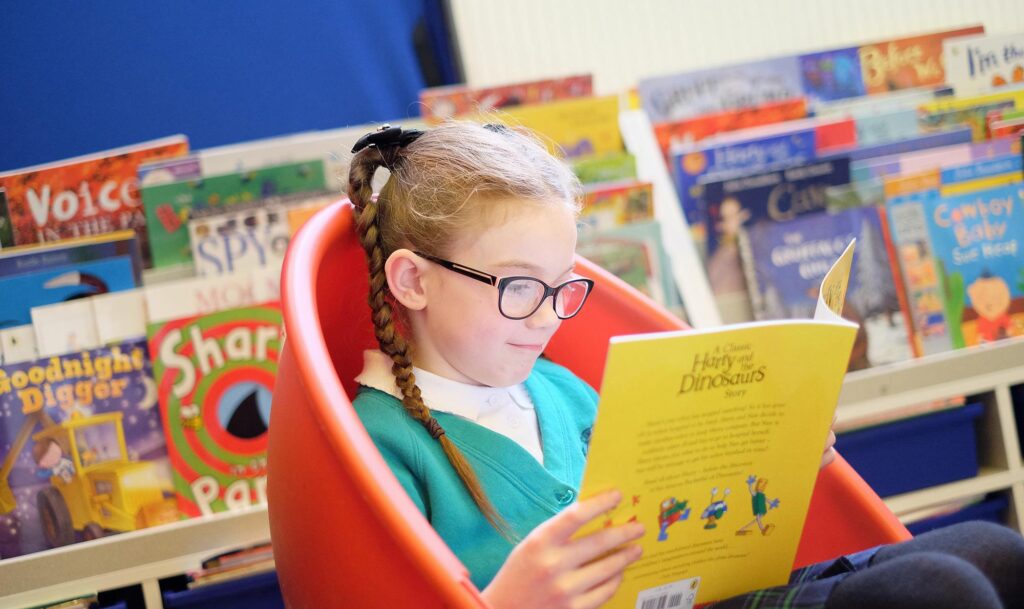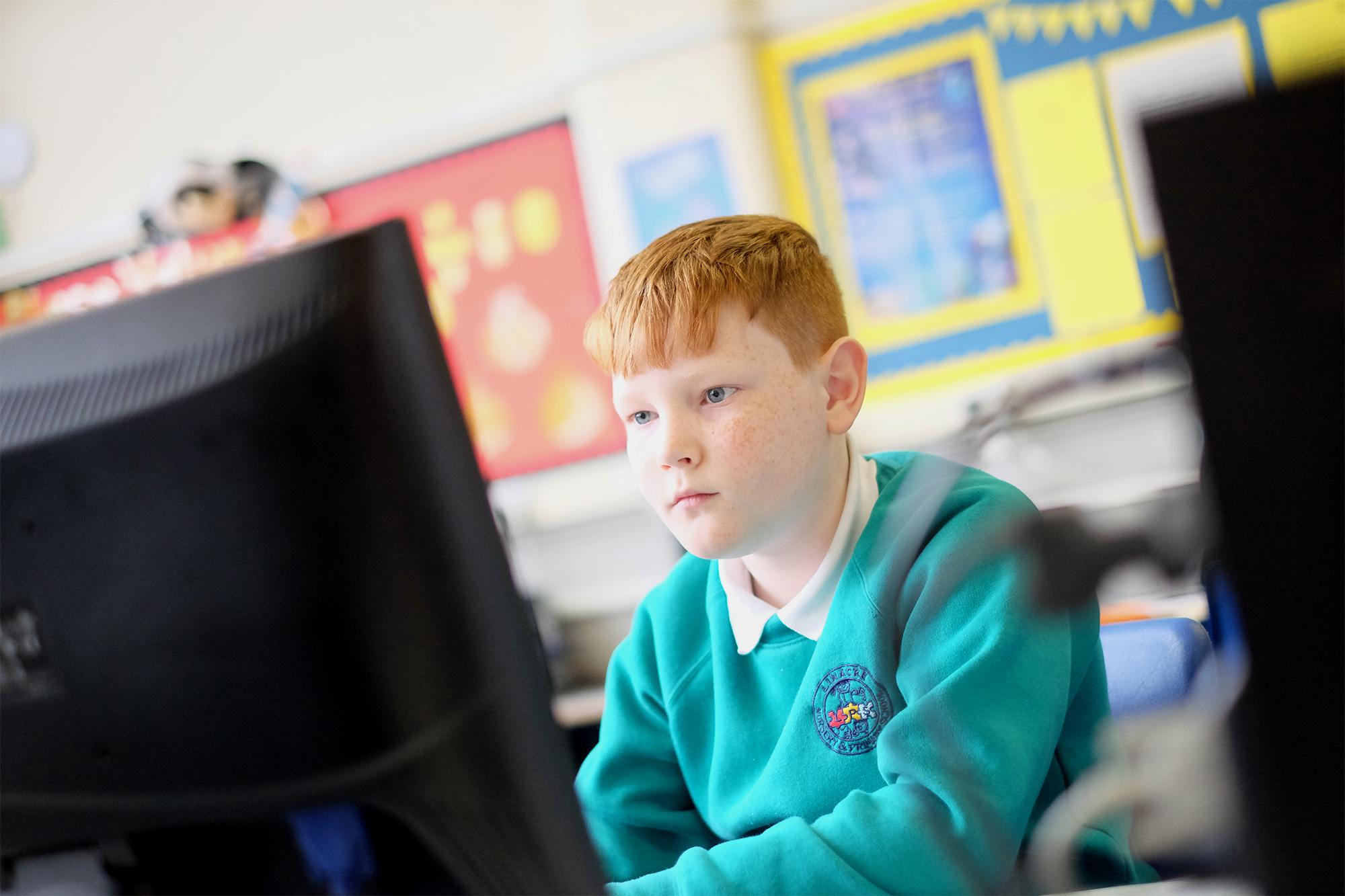What is RE?
Religious Education is an integral part of a child’s study of life and experience as a whole. We build upon the child’s growing awareness of him/herself, relationships with others and the natural world and their relationship with God. We do this by provoking challenging questions about the meaning and purpose in life, beliefs about God, ultimate reality, issues of right and wrong and what it means to be human. In RE, pupils learn about and from and worldwide views in local, national and global contexts in order to discover, explore and consider different answers to these questions. The teaching of RE, equips pupils with systematic knowledge and understanding of a range of religions and worldviews which enables them to develop their ideas and values and identities.

Nursery
The statutory requirement for Religious Education does not extend to Nursery class in maintained schools. However, RE is a valuable part of the educational experience and therefore, Nursey class will explore and celebrate significant religious events throughout the year. At Linacre Primary School, all planned teaching experiences will support the pupils Early Learning Goals through play, exploring and creativity. We understand that the activities that children engage with during Nursey years are experiences which provide building blocks for later development. Starting with things which are familiar to the children and providing lots of hands-on activities and learning are important parts of pupils’ learning at this stage.
Reception Class
The Agreed Syllabus for RE 2021-2026 sets out experiences, opportunities, and appropriate topics for children in the Foundation Stage. The planned teaching outlined in the syllabus connect to the EYFS seven areas of learning. Children may begin to explore the world of religion in terms of special people, books, times, places and objects and by visiting places of worship. They listen to and talk about stories. They may be introduced to religious words and use their senses in exploring religions and beliefs, practices and forms of expression. They reflect on their own feelings and experiences. They use their imagination and curiosity to develop their appreciation and wonder of the world in which they live.
Key Stage 1
Throughout Key Stage 1, pupils should be taught the knowledge, skills and understanding through learning about Christianity, Muslims and Judaism. Pupils may encounter other religions and worldwide views in thematic units, where appropriate. Pupils should develop their knowledge and understanding of religious and non-religious worldviews, recognising their local, national and global contexts. They should use basic subject specific vocabulary. They should raise questions and begin to express their own views in response to the material that they learn about and in response to questions about their ideas.
Key Stage 2
Throughout Key Stage 2, pupils should extend their knowledge and understanding of religious and non-religious worldviews, recognising their local, national and global contexts. Pupils continue to learn about Christianity, Muslims and Judaism with an introduction to Hinduism and humanists. Pupils should be introduced to an extended range of sources and subject specific vocabulary. They should be encouraged to be curious and to ask increasingly challenging questions about religion, belief, values and human life. Pupils should learn to express their own ideas in response to the material that they engage with, identifying relevant information, selecting examples and giving reasons to support their ideas.
Intent
The RE Curriculum at Linacre aims to provide the children with the knowledge of a range or religions. The children are encouraged to celebrate their own and others religions as well as show curiosity about different faiths and beliefs. We are a proud to be a diverse school in which we share our own experiences in a mutual respected way. At Linacre, we follow the Sefton Syllabus (2021-2026) which is based on Christians, Muslims, Hindus and Judaism for Reception Class - Christians, Muslims, and Hindus in Key Stage 1 - Christians, Muslims, Hindus, Judaism and non-religious people (Humanists) in Key Stage 2.
We build upon the child’s growing awareness of him/herself, relationships with others and the natural world and their relationship with God. We do this by provoking challenging questions about the meaning and purpose in life, beliefs about God, ultimate reality, issues of right and wrong and what it means to be human. In RE, pupils learn about and from and worldwide views in local, national and global contexts in order to discover, explore and consider different answers to these questions.
The teaching of RE, equips pupils with systematic knowledge and understanding of a range of religions and worldviews which enables them to develop their ideas and values and identities. The teaching sequences are based upon prior knowledge where the children are able to explore and draw on previous knowledge of a religion in a more complex way.
Implementation
RE is taught for 30 minutes to 1 hour a week depending on the lesson content. Each lesson is planned and taught using the Sefton Syllabus (2021-2026) and it builds on the children’s prior knowledge of each religion being taught. The children have opportunities to explore stories, show curiosity by asking questions, examine and explore religious symbols and artifacts, and to visit places of worship in their local community.
Teachers have a range of strategies to assess RE at the end of each lesson and/or unit. This can consist of worship time, quizzes and class discussions. In our planning we will select appropriate areas for assessment working towards the learning outcomes. At Linacre Primary School, class teachers use both formative and summative assessments at the end of each lesson and unit of work.
Impact
The impact for all pupil’s at Linacre including disadvantaged pupils and pupils with SEND is that they will:
1. Know about and understand a range of religious and non-religious worldviews, so that they can:
describe, explain and analyse beliefs and practices, recognising the diversity which exists within and between communities and amongst individuals
identify, investigate and respond to questions posed, and responses offered, by some of the sources of wisdom found in religious and non-religious worldviews
appreciate and appraise the nature, significance and impact of different ways of life and ways of expressing meaning.
2. Express ideas and insights about the nature, significance and impact of religious and non-religious worldviews, so that they can:
explain, using reasoned arguments, their ideas about how beliefs, practices and forms of
expression influence individuals and communities
express with increasing discernment their personal reflections and critical responses to questions and teachings about identity, diversity, meaning and value, including ethical issues
appreciate and appraise varied dimensions of religion.
3. Gain and deploy the skills needed to engage seriously with religious and non-religious worldviews, so
that they can:
investigate key concepts and questions of belonging, meaning, purpose and truth, responding
creatively
enquire into what enables different individuals and communities to live together respectfully for the wellbeing of all
articulate clearly beliefs, values and commitments in order to explain why they may be important in their own and other people’s lives.

